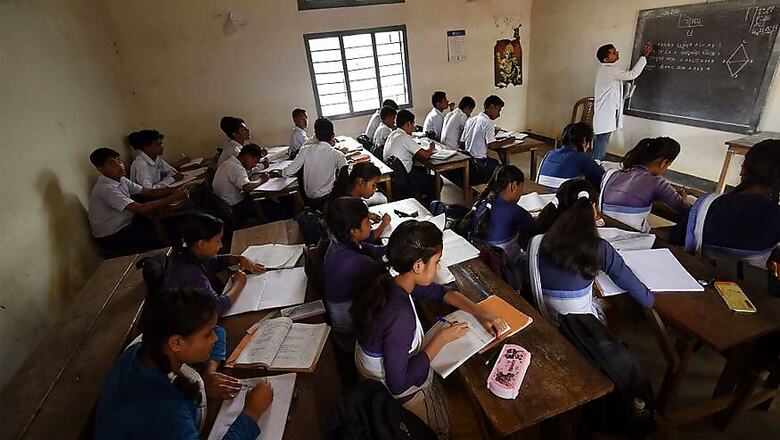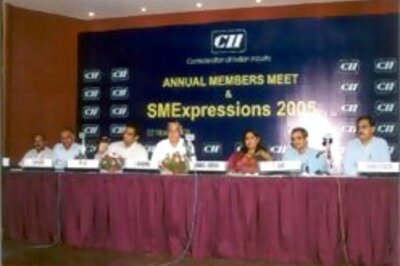'Integrity of Book Violated': Ex-NCERT Head Slams Decision to Drop 3 Chapters from Class 9 Textbooks

views
New Delhi: Taking a stern view of NCERT’s decision to drop three chapters from its Class IX history textbook, former NCERT head Krishna Kumar on Monday said the very premise of the exercise is flawed and will violate the integrity of the textbook.
Speaking to News18, Kumar said any mechanical kind of cut ignores the integrity of the book and violates it. “The integrity of the textbook has been violated. The whole book was designed by historians – without wider consultation changes have been made, this shows there is no respect for intellectual work gone in creation of this integrity.”
“All these attempts to reduce the size of the book are unacceptable because these books are based on the National Curriculum Framework 2005, which offered a very different perspective to curriculum and textbook,” he said.
As a part of a second textbook review undertaken by the current government, the National Council of Educational Research and Training (NCERT) is set to delete almost 70 pages from the textbook titled, ‘India and the Contemporary World – I’.
It has also dropped three chapters from its Class 9 history textbook —including one that talks about caste conflict through the struggles of the so-called “lower caste” Nadar women of Travancore, who were forced to keep their upper bodies uncovered.
This decision is part of the curriculum rationalisation exercise which was initiated to reduce the burden on the students under the watch of the Human Resource Development minister Prakash Javadekar.
But the former NCERT head says the whole premise is flawed. “The idea was that for books like these the teachers and students will select a few chapters and they don’t have to be examined for all chapters in any case. These are attractive books, offering a wide canvas of history, which includes not only history of various regimes, but also social history.”
These textbooks provide “a new perspective on history itself,” he said, adding that dropping some chapters or not print them is like “not allowing students access to this wider history.”
“It’s like depriving them of much more comprehensive understanding, and the books were so interestingly produced, with the expectation that students will themselves read these books,” Kumar said. “The idea was that teachers would probably go deeper in some of the chapters. Any four can be chosen for an intensive study. The books allowed flexibility,” he added.
The three chapters reported to have been deleted are ‘Clothing: A Social History’, ‘History and Sport: and The Story of Cricket’ and ‘Peasants and Farmers’.
He said the new decision ignores the main context of these books. “The NCF approach was about delinking curriculum from textbooks. The curriculum is much wider than the text. The idea was to allow some freedom and it is unfortunate, very wrong to drop them altogether. The book has unity to it and it can’t be ignored with these decisions. It’s a major and a relevant loss.”
The government has also stressed on the burden of the bags, to which Kumar said the debate was settled with the Yashpal report of 1993. “Why insist on children bringing books every day? The issue of the burden of the bag has been dealt with in the 1993 Yashpal report, which we continue to ignore. The books can stay in school.”
“This idea of cutting down on books is amazing. On one hand there are digital books, and to reduce the burden students can have the e-version. This can be seen in the context of promoting digital means,” he said.
Kumar said physical burden of books is not the issue as when children understand something well, they will comprehend it and then the sense of burden will disappear. “The burden is felt because education becomes uninteresting and that is what NCF-based book tried to address. We have gone several steps backwards with this decision.”




















Comments
0 comment